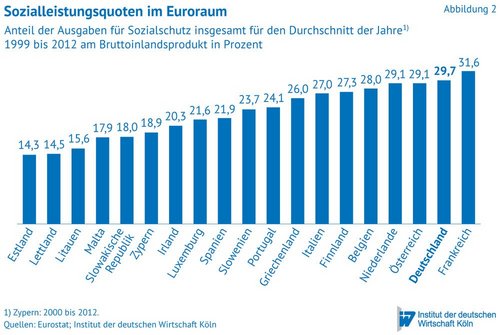To improve its functioning and stability, it has been widely proposed that new rules and institutions be established for the European Economic and Monetary Union. Common to many suggestions is a demand for further integration of economic and fiscal policy, which would involve a shift of the relevant competences from the individual member states to the European level. However, an empirical study using a variety of fiscal and social policy indicators reveals considerable diversity in the design of member states’ fiscal policy. Behind these differences lie the significantly divergent preferences of the Eurozone countries’ populations, which are then translated by political choices into different conceptions of fiscal and social policy and distinct policy measures. Centralizing decisions in these policy areas would fail to reflect such preference differences. It therefore seems only logical that social, labour market and, for the most part, fiscal policy in the European Union has largely remained a national competence.

Differences in Fiscal Policy Preferences within the EMU

More on the topic
Not so Different?: Dependency of the German and Italian Industry on China Intermediate Inputs
On average the German and Italian industry display a very similar intermediate input dependence on China, whether accounting for domestic inputs or not.
IW
China’s Trade Surplus – Implications for the World and for Europe
China’s merchandise trade surplus has reached an all-time high and is likely to rise further. A key driver appears to be a policy push to further bolster Chinese domestic manufacturing production, implying the danger of significant overcapacities.
IW